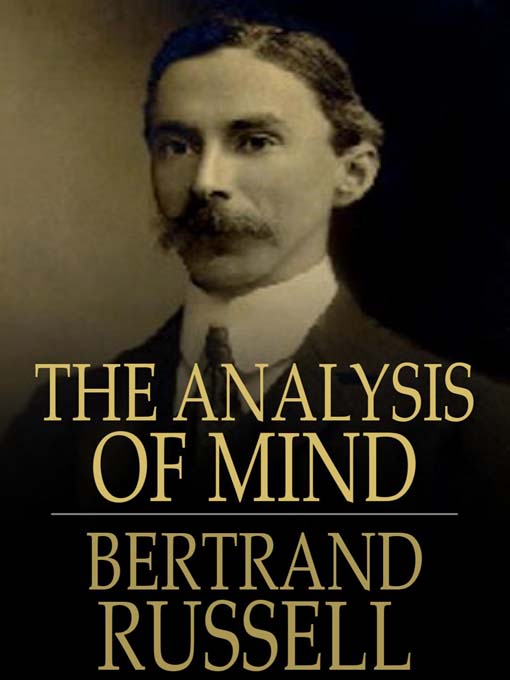Philosopher, logician, mathematician, social reformer and historian, the renowned Nobel Prize winner Bertrand Russell has been an intellectual force of the twentieth-century, his influence on contemporary thought far reaching. Russell writes in the preface of his philosophical and psychological accomplishment The Analysis of Mind:
This book has grown out of an attempt to harmonize two different tendencies, one in psychology, the other in physics, with both of which I find myself in sympathy, although at first sight they might seem inconsistent. On the one hand, many psychologists, especially those of the behaviourist school, tend to adopt what is essentially a materialistic position, as a matter of method if not of metaphysics. They make psychology increasingly dependent on physiology and external observation, and tend to think of matter as something much more solid and indubitable than mind. Meanwhile the physicists, especially Einstein and other exponents of the theory of relativity, have been making "matter" less and less material. Their world consists of "events," from which "matter" is derived by a logical construction. Whoever reads, for example, Professor Eddington's "Space, Time and Gravitation" (Cambridge University Press, 1920), will see that an old-fashioned materialism can receive no support from modern physics. I think that what has permanent value in the outlook of the behaviourists is the feeling that physics is the most fundamental science at present in existence. But this position cannot be called materialistic, if, as seems to be the case, physics does not assume the existence of matter.
The view that seems to me to reconcile the materialistic tendency of psychology with the anti-materialistic tendency of physics is the view of William James and the American new realists, according to which the "stuff" of the world is neither mental nor material, but a "neutral stuff," out of which both are constructed. I have endeavoured in this work to develop this view in some detail as regards the phenomena with which psychology is concerned.

